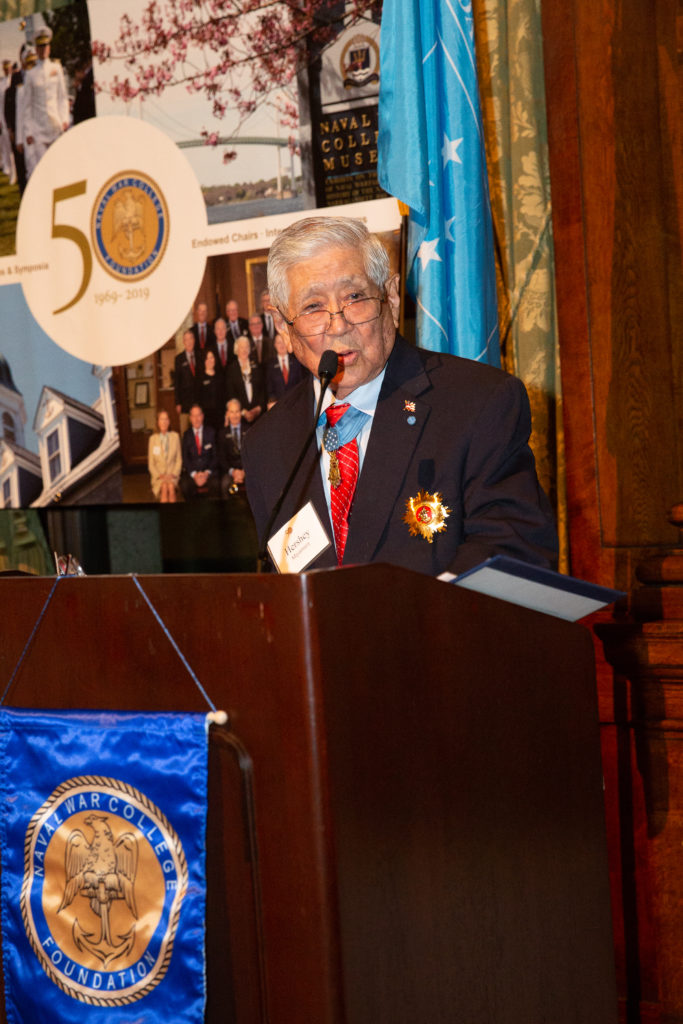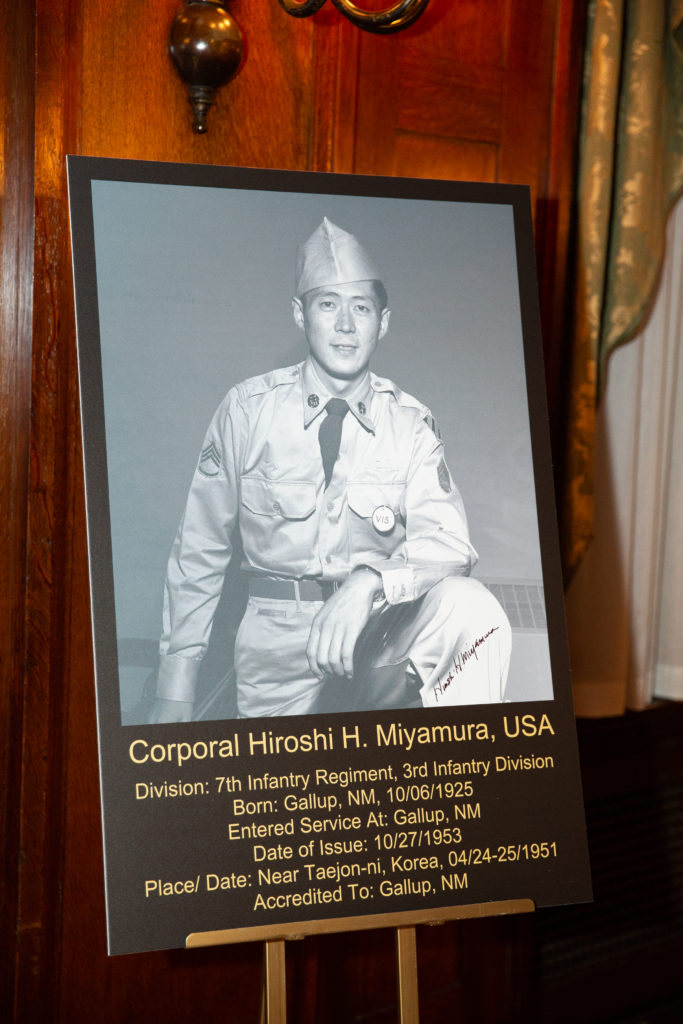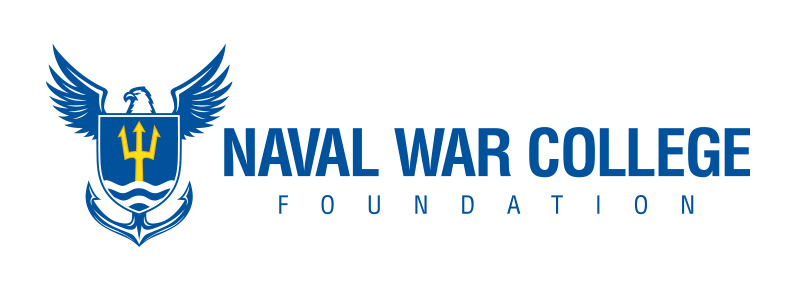 Our series of conversations with the Naval War College Foundation Sentinel of the Sea recipients continues with Hiroshi “Hershey” Miyamura, a Medal of Honor recipient and veteran of two wars – World War II and the Korean War.
Our series of conversations with the Naval War College Foundation Sentinel of the Sea recipients continues with Hiroshi “Hershey” Miyamura, a Medal of Honor recipient and veteran of two wars – World War II and the Korean War.
Perseverance has been a key trait in Miyamura’s life, one that he channeled when he was captured as a prisoner of war during his time in Korea. “I learned that you don’t give up. On our march to camp as prisoners, there was a group of 30 or 40 men and about a dozen of the young men refused to eat the food that was given to us. I told them they needed to eat it but they continued to refuse, and we lost them along the way. Once you give up, there’s no hope. If you keep trying, there’s a chance you might succeed.”
For Miyamura, succeeding meant surviving. And when he was released from the POW camp, he knew he had succeeded. What he didn’t know – and what had been kept top secret from his family and the Nation – was that he had been awarded the Medal of Honor for his actions on April 24, 1951. That evening, under intense fire from the enemy, Miyamura ordered his men to fall back while he remained to offer cover. His MoH citation reads: “He maintained his magnificent stand despite his painful wounds, continuing to repel the attack until his position was overrun. When last seen he was fighting ferociously against an overwhelming number of enemy soldiers. Cpl. Miyamura’s indomitable heroism and consummate devotion to duty reflect the utmost glory on himself and uphold the illustrious traditions of the military service.” He was captured by the North Koreans after the attack.
 Once released, he learned of his selection for the MoH. “I crossed the line from North Korea to South Korea, and I was told to meet with Brigadier General Ralph Osborne of the 3rd Infantry Division. He asked if I knew why I was there, and I said ‘No’. He told me that I had received the Medal of Honor but that it had been kept secret because the DoD (Department of Defense) was afraid of retaliation from the enemy. It was such a shock and surprise to me.”
Once released, he learned of his selection for the MoH. “I crossed the line from North Korea to South Korea, and I was told to meet with Brigadier General Ralph Osborne of the 3rd Infantry Division. He asked if I knew why I was there, and I said ‘No’. He told me that I had received the Medal of Honor but that it had been kept secret because the DoD (Department of Defense) was afraid of retaliation from the enemy. It was such a shock and surprise to me.”
“Most Medal of Honor recipients feel the same: that others should have also received the medal for their actions. We wear this medal for all of those who did not receive the recognition,” reflects Miyamura.
Miyamura’s legacy of heroism began when he first attempted to enlist in the army after the attack on Pearl Harbor. “When Japan bombed Pearl Harbor, it changed the lives of those of us of Japanese ancestry living in America. When I wanted to volunteer for the military, I was told I was an enemy agent. I could not believe it. My father came in 1923 to America and opened up his own business in Gallup, New Mexico. All of his children were born in Gallup, and we all felt that we were American. So that was a shock to me when I was told that I was not an American citizen and could not volunteer for the service or be drafted.” It was in large part thanks to the efforts of the 442nd Infantry Regimental Combat Team – a group of soldiers composed of second generation Japanese-Americans – that Miyamura and others like him were eventually able to serve. Despite the burden of being asked to prove their loyalty, the 442nd Infantry became the most decorated unit for its size in U.S. military history. Although Miyamura did not see action with the unit, he trained alongside them.
After WWII, Miyamura enlisted in the reserves and was called to duty when the fighting in Korea began. He was assigned to an integrated unit, his citizenship and loyalty no longer in question. He notes, “That story is so important to us. That is what this country is all about – having equal rights for everybody.”
Only five Medal of Honor recipients from the Korean War are still alive, and Miyamura shared his perspective on the conflict at the NWCF Annual New York Dinner in November 2019. “It was such an honor to be asked to represent the Korean War. Institutions like the Naval War College are very important. We know when students graduate from there that they are going to be our leaders – both in our military and in the civilian world.”
At 94, Hershey is still thriving. He currently resides with his daughter in Arizona, where he has occupied himself during the pandemic by working on puzzles, an activity that is keeping his memory sharp and his patience in check – a quality that has been tested many times in his life. He continues to support veterans through organizations such as the Wounded Warrior Project.
